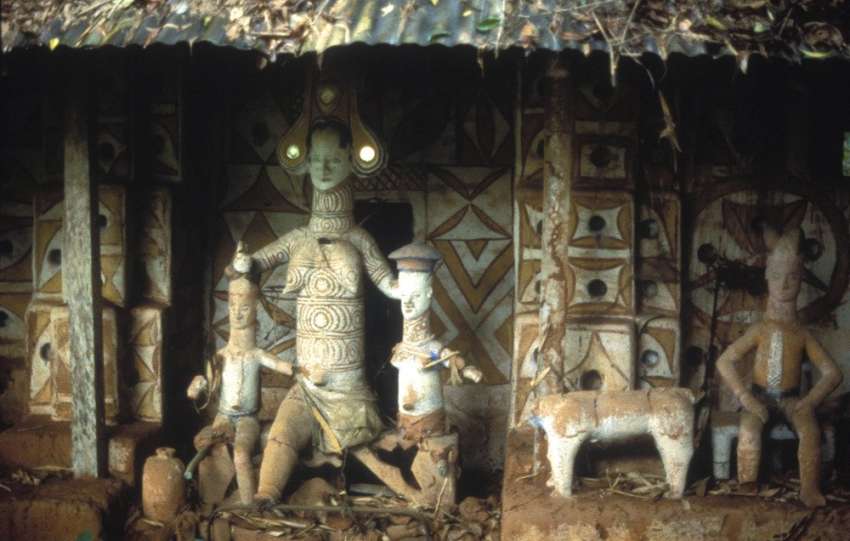
The Atilogwu dance is one of the most energetic and exciting traditional dances of the Igbo people in Nigeria. It is characterized by acrobatic moves, quick footwork, and colourful costumes; this dance is a true celebration of Igbo creativity, culture, and pride.
The Origin of Atilogwu

The Atilogwu dance has its roots in Ezeagu, Anambra State, and nearby communities like Ebenebe, Ugbanu, and Igbo-Ukwu. The name “Atilogwu” translates to “has magic” in the Igbo language. Many believed that only magic or supernatural powers could make the young dancers perform with so much energy and skill while looking so effortless.

This dance combines five unique traditional dance styles:
Mpokiti, Nkwa, Anaku, Ogwulogwu, and Ochufulu. Together, they create a high-energy and dynamic performance that has become a hallmark of Igbo culture.
In 1947, the dance gained more structure and popularity thanks to the Ezeagu Improvement Union in Lagos. With the help of teachers like Cyprian Oke, Sylvester Ejiofor, Godwin Ofor, and Goddy Okeke, Igbo youths in Lagos learned the Atilogwu dance. It started during a condolence visit and later at National Igbo Day in 1948. The breathtaking performance drew attention across Nigeria and beyond.
After the Nigerian Civil War, the dance was revived in 1962, led by Sylvanus Anidu in Enugu. This ensured that Atilogwu remained a vital part of Igbo cultural identity.
How the Dance is Performed

The Atilogwu dance is known for its high energy and incredible acrobatic displays. It is performed by young performers who are at the peak of their youth and perform flips, stunts, and well-patterned dances with precise timing and rhythm. Traditional Igbo instruments like the ogene (metal gong), drums, and flutes direct the tempo of the dance. The lively music complements the dancers’ rapid and skilful movements.
The Vibrant Atilogwu Dance Costumes
The dancers’ costumes are as colorful as the dance itself. The male dancers wear sleeveless shirts, raffia skirts, and raffia bands around their knees and arms. They even wear beaded caps on their heads, which give them a royal look.
The female dancers wear traditional wraps usually decorated with beads and other embellishments. The costumes reveal the richness of Igbo culture and add to the show with more appeal.
The Significance of Atilogwu
Atilogwu is not merely a dance; It’s a way for the Igbo people to celebrate their traditions, community values, and history. The dance is widely present at festivals, weddings, and other important events, where it is usually paired with traditional Igbo dishes that make the occasion even more special.
Atilogwu dance is not only for entertainment; it makes individuals proud. It depicts the strength, creativity, and togetherness of the Igbo people. It is a powerful tool for conserving cultural heritage and motivating young people to appreciate their traditions.
A Global Stage
Over the years, the atilogwu dance has spread to numerous locations beyond Nigeria. Individuals dance it during cultural festivals and celebrations across the globe, demonstrating the richness and beauty of Igbo culture to the rest of the world. It is a source of pride for the Igbo people and a reminder of the need to preserve cultural heritage.
The Atilogwu dance is more than just a performance—it celebrates Igbo identity and culture. Its thrilling movements, exquisite costumes, and profound cultural significance continue to draw crowds wherever it’s performed. The Atilogwu dance is indeed one of the finest jewels of the Igbo people and a treasure that will continue to inspire generations yet unborn.
Atilogwu: An Igbo Cultural Dance From Enugu, Nigeria / Adamazitv-TV
Atilogwu Dance / G
References:
- HubPages. (n.d.). Igbo traditional dances.
- Umu Igbo Unite. (n.d.). The Atilogwu dance.


